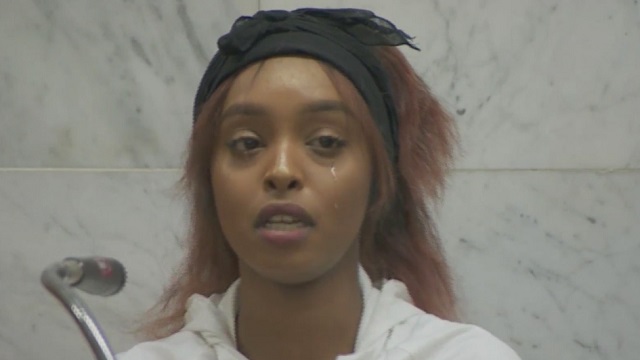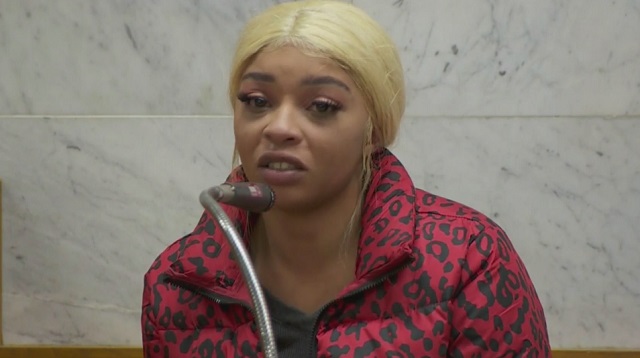PORTLAND, Ore. (KOIN) — A little more than a week after a jury unanimously convicted Jeremy Christian on all 12 charges in the deadly MAX attack, the first juror is speaking out about the experience.
On May 26, 2017, Christian killed Taliesin Namkai-Meche and Ricky Best and critically wounded Micah Fletcher on the Green Line as it pulled into the Hollywood Transit Center. Prosecutors say Christian had been ranting at two black teens on the train when Namkai-Meche and Fletcher tried to stop him. The confrontation escalated to shoving, and then Christian stabbed the three men.
I met Juror B33 for coffee Sunday morning in Northeast Portland. He was dressed more casually than during the trial, wearing jeans, a Carhartt jacket, and a baseball cap. Born and raised in Portland, Oregon, he usually works as a facilities manager for a major company. For more than a month, though, he put his life on hold to sit front and center in the jury box for one of Oregon’s highest-profile murder cases.
We spoke for more than an hour about what happened in the courtroom, behind the closed door of the jury room, and how he’s coping with the disturbing video and testimony jurors were exposed to.
Listen to the story behind the story below, or download it on iTunes, Spotify, or Podbean.
Most gripping evidence and witnesses
“It was the video. I mean, undeniably the video,” Juror B33 said.
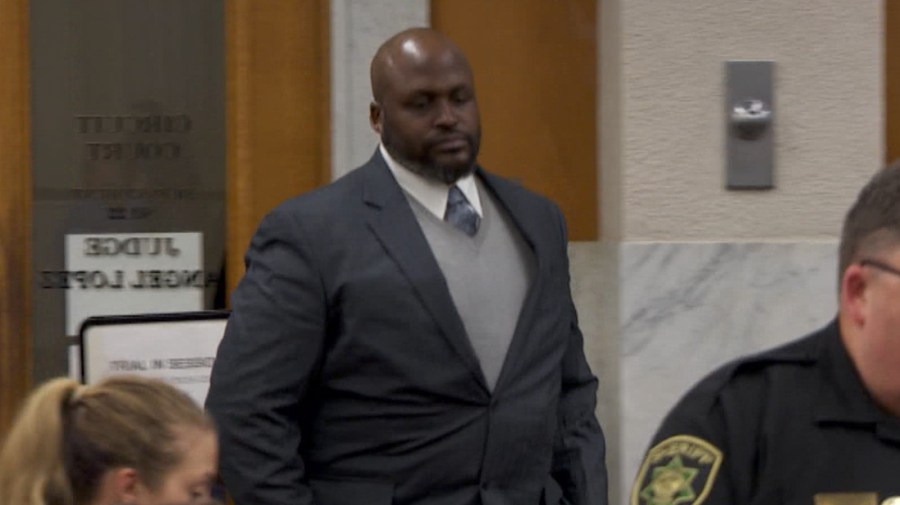
Seeing it the first couple of times was one thing, but then they saw it again and again from different angles.
“The (15+ minute compilation video) was getting tougher and tougher to watch, and then, of course, the stabbing sequence slowed to 50%—that was pretty brutal,” he said.
As for the witnesses he’ll remember the most?
“Shawn Forde gave powerful testimony,” he said. “(Morgan Noonan) was very credible, very relatable. He was the Army medic that, you know, had idle chit-chat in the past with Ricky Best … Some of the descriptions that he gave were pretty powerful.”

“Everyone in the room felt that that was intentional murder”
After about a day and a half of deliberations, jurors returned a unanimous guilty verdict on all 12 counts. Juror B33 said there was only a brief discussion of the lesser counts Christian could have faced instead of first-degree murder.
“We felt the attacks … displayed zero indications of defending yourself,” he said. “You mix it up with some people on a train, and you pull out your knife, you know, you don’t just start stabbing them in the neck … Because of the precision, and the speed, everyone in the room felt that that was intentional murder.”
The verdict that almost wasn’t unanimous

The jurors did heavily debate the intimidation charges though, particularly with regards to Walia Mohamed and Destinee Mangum.
“It was really, really hard to determine whether he was directing that rant specifically at those two teenage girls. So there was a huge amount of discussion on that,” Juror B33 said. “As soon as that phrase ‘reasonable doubt’ hit the table, that’s when we hit a wall because there’s no audio. Is he looking at them? Is he not looking at them?”
In closing arguments, defense attorneys argued that even Mohamed testified Christian’s statements didn’t seem to be directed at her.
“We had direct testimony from the person who had the crime committed against her and she’s saying, ‘It’s going to the whole train.'” But according to B33, the fact that so many other people on the train were yelling at Christian to “leave them alone” convinced the jurors his rant was directed at the girls.
One verdict almost didn’t come back unanimous, however: The assault charge relating to Demetria Hester.
“You can see in the video, Jeremy Christian is walking in front of Demetria, walking away from her and she sprayed him in the back of the head and he instinctively just spins around and whips the Gatorade bottle at her,” he said. “Was that intentional assault? Is he so good at throwing bottles that he can make the cap hit her in the eye? I personally struggled with the assault charge because he was getting sprayed with Mace before he threw the Gatorade bottle.”
“… 11 people raise their hand, but I don’t…”
Juror B33
He said he didn’t believe Christian would have attacked Hester had she not Maced him first. The lack of audio in that video was another roadblock, and Juror B33 also thought the defense did a persuasive job of trying to discredit Hester by calling attention to conflicting statements she made after the attack.
Even though that verdict didn’t need to be unanimous, the juror said his peers changed his mind after the initial vote.
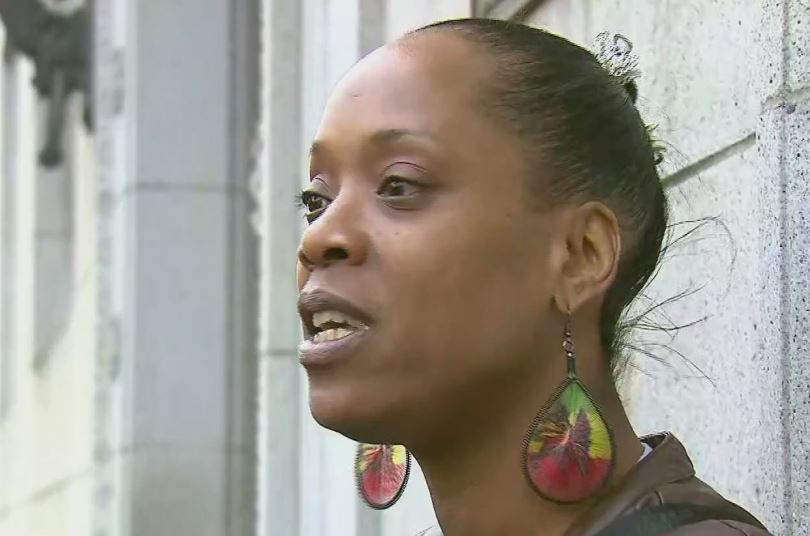
“Initially I had no qualms about being the 11-1, but I think my fellow jurors—they wouldn’t let me move on until they knew exactly what I was thinking and until they told me exactly what they were thinking. We had a lot of healthy debate. Nobody really lost their cool. We tried to stick to the evidence.”
White supremacy not a huge factor in debate
Prosecutors made Christian’s alleged racist and white supremacist beliefs a huge part of their argument, even calling Pete Simi, who has spent years researching white supremacists, to testify. But that subject went largely untouched during deliberations, Juror B33 told KOIN 6 News.
“I think most of us kind of went with the defense argument,” he said. “(Christian) would say anything to get a rise out of anybody.”
Relating to a murderer
Juror B33 was struck by how many details he could relate to in the trial. Every time he gets on a MAX train, he looks at the car number because he heard MAX car 415 was put back in service. His commute home from the courthouse took him through the Hollywood Transit Center. As a kid, he used to eat at Stark Street Pizza, where Micah Fletcher worked at the time of the stabbing.
“(But) my biggest challenge in the trial was how relatable I could be with Jeremy Christian,” B33 said. Christian was born and raised in Portland; so was the juror. They both collected comic books and came from a middle-class family with divorced parents. “The whole nine yards.”
“I wanted, I wanted so bad to show him some kind of sympathy,” he said. “It was just impossible to.”

Deliberations not over: Handling the sentence enhancement questions
After the verdict was delivered on Friday, February 21, Juror B33 said he and his peers were shocked to find out they would be returning the following week to discuss the sentence enhancement factors, which could help Judge Albrecht impose a longer sentence on Christian.
That’s also where one of the biggest moral dilemmas arose for B33.
“As a member of this society, I feel obligated to give people an opportunity to get rehabilitated,” he said. “I said, ‘Hey, you know last week we threw the book at this guy and now this is our opportunity to display some mercy and some clemency and some sympathy.'”
In the end, though, the lack of remorse was a huge factor, B33 said. And Christian’s outbursts and expressions in the courtroom, including nodding and laughing, did not go unnoticed.
“How can he behave like that in court and then we’re going to come in here and say yeah he was remorseful?”
In the end, the jury was unanimous again on all six enhancement factors. A sentencing date has not yet been set.
Inside the jury room
The jurors spent a lot of quality time together in the cramped room adjacent to the courtroom. Luckily, they all got along well, B33 said. When asked how they spent their downtime, he answered, “Nintendo Switch… There were three of us that had them in the jury room.” They also had access to magazines that were about five years old, and one juror brought in a cribbage board.
They also developed a fondness for Judge Cheryl Albrecht’s clerk, Cody Linderholm. “He’s just a super nice guy” who brought them coffee, water, doughnuts on Fridays, and things like that.
B33 said they had a running joke with the clerk because he would come in every morning and say court should get started in about 15 minutes. Then they wouldn’t see him again for about 45 minutes.
“So we kind of picked up on that and we’re like, ‘Okay. See you in an hour.'”
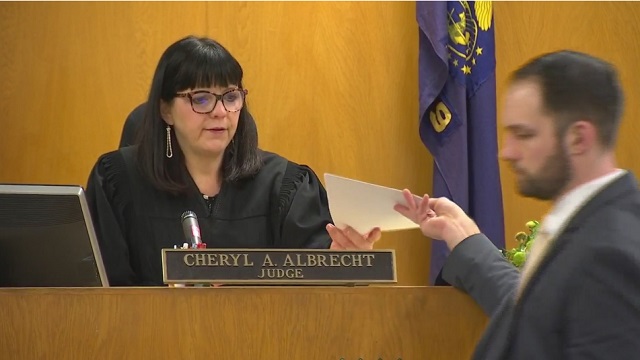
Mental health: Where the jurors go from here
Juror B33 described the mood in the jury room after being confronted with horrifying evidence, videos, and testimony as “very solemn and very stoic.” But after closing arguments, when they broke for lunch and he was going to meet his daughter, he said the emotional trial caught up with him and “I just lost it” in the park across from the courthouse.
B33 said he’s looking forward to getting back to his normal life and moving past this, but it will be tough, especially since everyone at work will want to talk about it.
Judge Albrecht and the county acknowledged that jurors exposed to these kinds of trials can suffer emotionally long after the verdict is handed down. So last week, after the jurors were dismissed, a team of trauma intervention specialists met with the jurors and told them what to expect.
The jurors can also get six sessions with a counselor, Juror B33 said. He plans to take them up on the offer.
“The biggest thing is, you know, my personal relatability to Jeremy Christian and my inability to display any kind of mercy or sympathy toward him. That needs to be thrown on the table and sorted out.”

